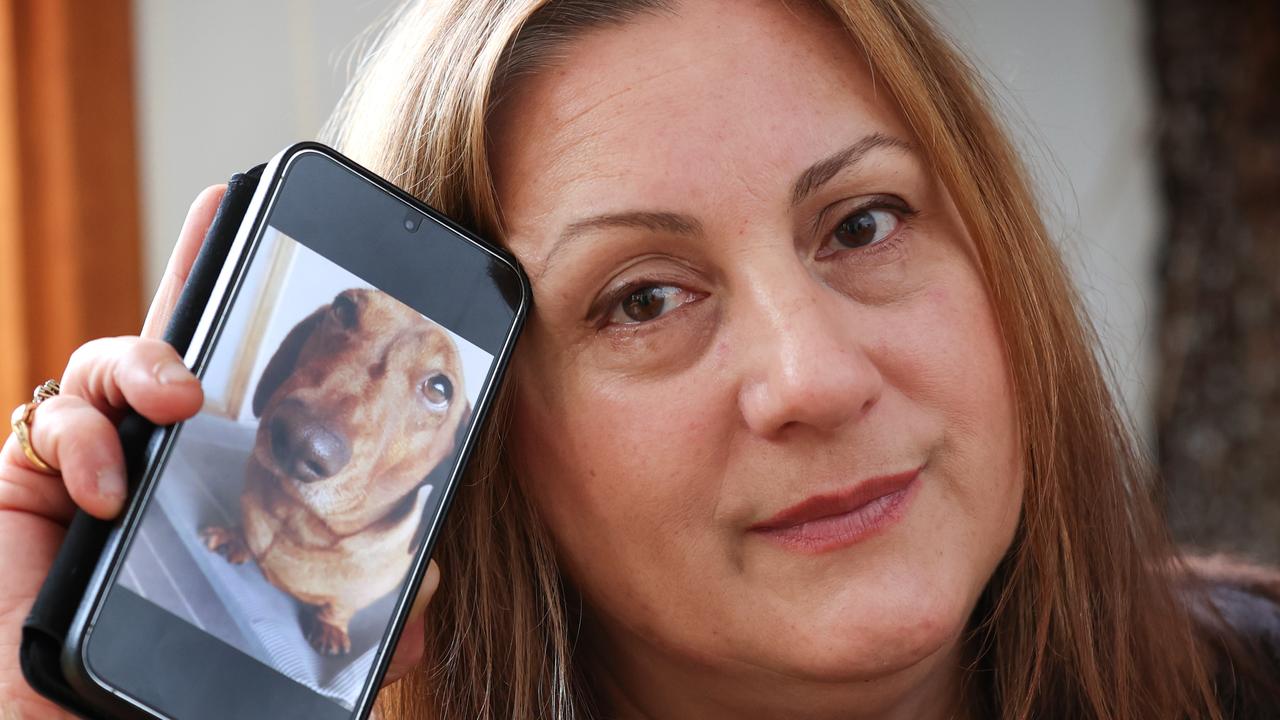‘Shift from hell’: Paramedic crashes after 18-hour shift
A paramedic who nearly lost his life after crashing down an embankment in the Hume region following an 18 hour shift has hit back at Ambulance Victoria for “discrediting” him.
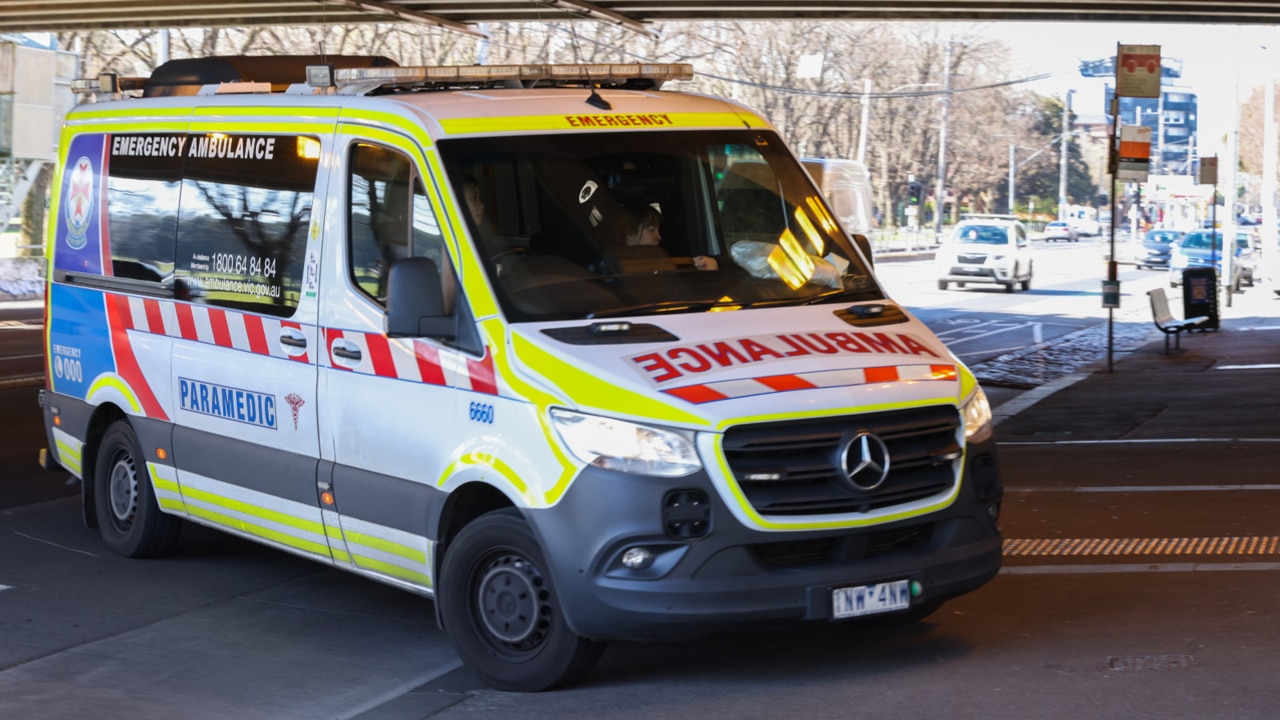
News
Don't miss out on the headlines from News. Followed categories will be added to My News.
A paramedic who nearly lost his life after crashing down an embankment in the Hume region following an 18 hour shift has hit back at Ambulance Victoria for “discrediting” him.
Jim Avard, 56, had endured a “shift from hell” – having worked from 7am until 1.30am the following morning – when he fell asleep at the wheel on Thursday.
Mr Avard, who has worked as a paramedic for 23 years, said he felt “unsupported” by Ambulance Victoria who questioned whether he was on the clock at the time of the rollover.
In a statement to the Herald Sun on Monday afternoon, an Ambulance Victoria spokesperson said they were “reviewing the circumstances, including the movement of the ambulance between arriving back in Myrtleford at 12.39am on Thursday, until the rollover at 1.26am”.
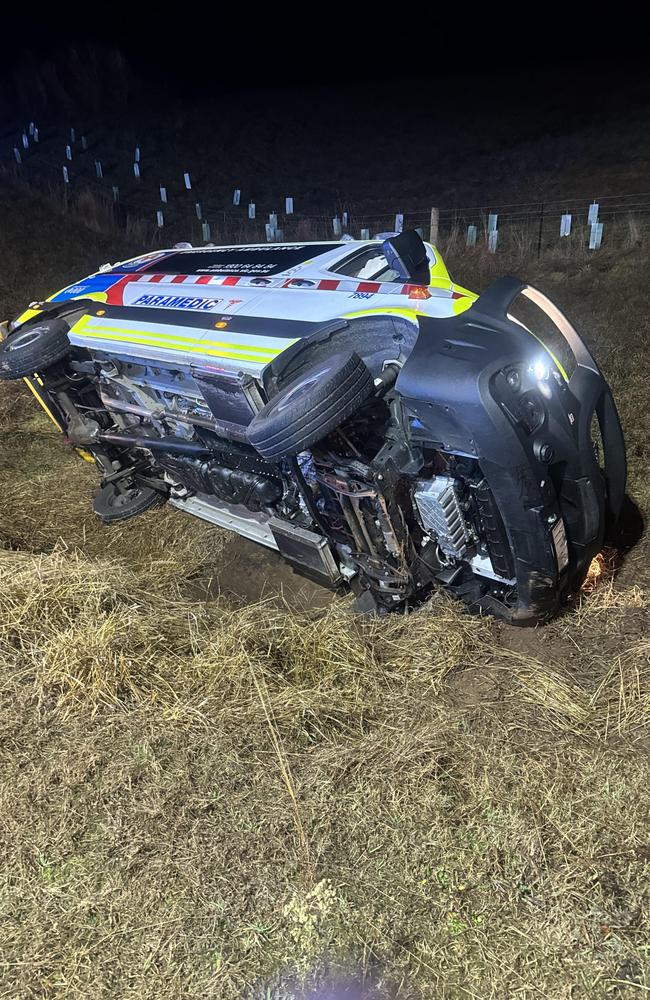
“There is no indication the paramedic was dispatched to a case at that time,” they said.
“The safety of our people is paramount and we have offered support to our paramedic. As with any driving incident involving our crews, it is now being investigated by our driving standards and health and safety teams.”
The spokesperson confirmed Mr Avard was not originally rostered to an 18-hour shift.
“They approved the 18 and a half-hour shift on my timesheet. They’ve got vehicle tracking data,” Mr Avard said.
“And for them to come out and discredit me – I’m frustrated and annoyed after serving them and the community for that long.”
Mr Avard had been ramped at Wangaratta hospital for several hours when he was called out to an incident in Corowa, just across the New South Wales border, at 9.30pm.
“I couldn’t believe they were actually sending us to (Corowa). You’re supposed to be taken out of service after 14 hours, but that doesn’t apply to on-call paramedics,” he said.
“I spoke to the duty manager and said do you realise we’ve already worked a 14.5h continuous shift.
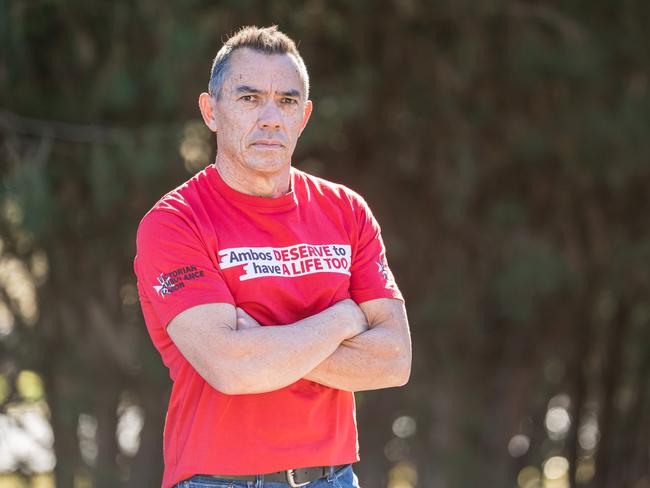
“And they say well there’s no resources in the area. So what do you do? Of course we went.”
When Mr Avard eventually started to head home to Myrtleford, which was located 90km away, he attended another job nearby before heading back to the branch to restock the truck and drop off his colleague.
On his way home he drifted off, crashing down the embankment at 90km/h.
“I just remember being upside down and not being able to feel my legs due to the seat belt cutting off circulation,” he said.
“I wasn’t nodding off tired, but maybe more asleep with your eyes open tired. I knew I was very close to home and I couldn’t wait to have a shower, get into bed and not be on call.”
Mr Avard’s colleagues from a private patient transport crew managed to free him before he was then flown to the Royal Melbourne Hospital.
The veteran paramedic said he had submitted multiple health and safety claims through Ambulance Victoria over the past 12 months, raising concerns over fatigue, but has seen “no action”.
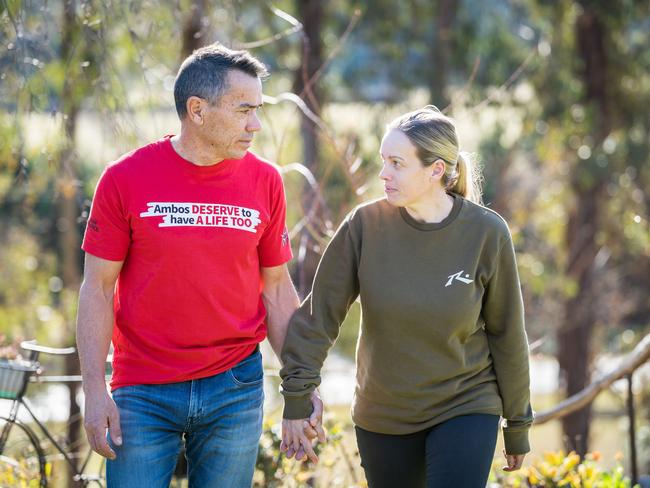
“Being dispatched and non urgent cases overnight while on call, it just creates more fatigue,” he said.
“The way we work up here in the country, it’s not sustainable from a fatigue management and workplace safety point of view.”
Mr Avard said he is taking it “a day at a time”.
“I don’t know (if I’ll return), I’m certainly taking time off and trying to get into a psychologist to help with my head noise.”
Most paramedics work four days on, four days off, consisting of two 10 hour day shifts and two 14 hour night shifts.
Crews in rural towns often work “on call” rosters which are typically eight days on and six days off. Their shift is normally 8am to 6pm, but they are then on call overnight.
It is expected these workers only attend life threatening emergencies while on call. But in this case, due to stretched resources, the rural workers were “used just like any other crew”.
Secretary of the Victorian Ambulance Union Danny Hill said Victorian crews are often called to towns in New South Wales, like Corowa, because there are scarce resources close to the border.
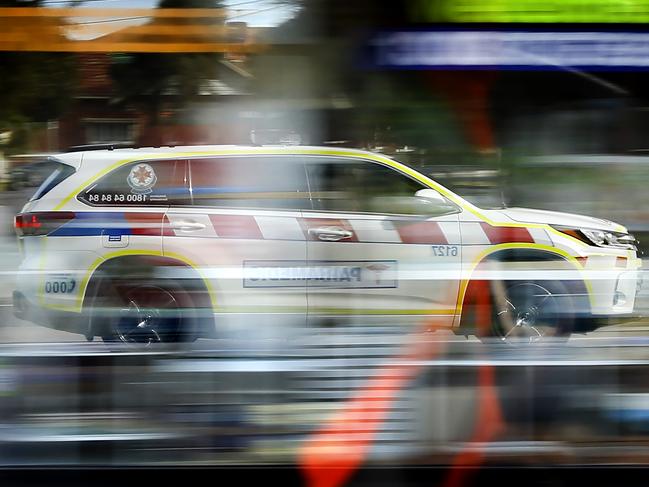
“They’ll say there’s a case down the road, you’re the only crew that can go to it and plead with them to go,” he said.
“And then they still have to make their way back home after the end of the shift. It puts them at enormous risk for distances that have to travel.
“You can’t rely on a fatigued person to identify that they themselves are fatigued.”
Mr Hill said paramedics often also work in the same towns that their patients live in, making them feel obligated to respond.
“Because if they don’t, they might bump into those people in the supermarket the following day.”
He said this wasn’t an isolated case, with paramedics working “massive amounts” of overtime.
“Even in places like the metropolitan regions and the busier centres, they work 12 or 14 hour night shifts, but then they could do a case that takes them three or four or five hours over. So we do see paramedics working 17-18 hour shifts from time to time.
“Paramedics will tell you at the moment, almost every day, they’re working past the end of their shift. It could be one hour, it could be three or four hours.
“They could be stuck in a hospital corridor and unable to get home, being made to look after a patient until hospital staff become available.”
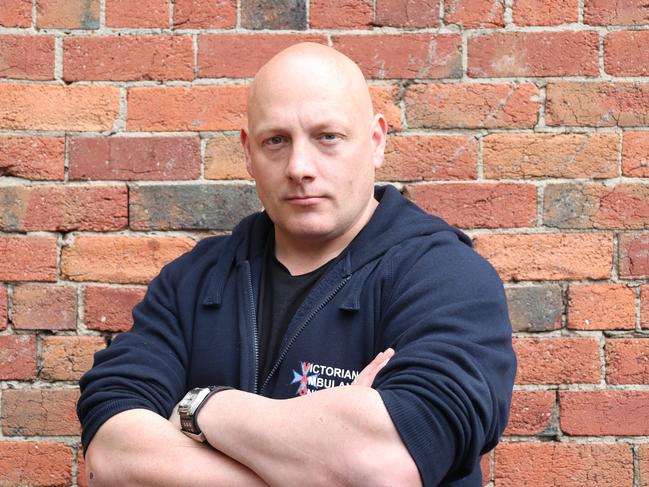
Mr Hill said crews have been calling for improvements to the call taking dispatch system for years with more and more paramedics being called to “trivial” incidents.
“So many of the silly cases you hear about people calling up ambulances for – crews are still being sent to those cases, often on the lights and sirens,” he said.
“They’ll say save triple-0 for emergencies but they’re still sending our crews to them and it adds to their fatigue.”
He said he expects an “exodus” of workers from the job if conditions don’t improve.
“Paramedics love their job. But it’s got to be a sustainable job that they can do,” he said.
“We’ve got research that shows that one in five paramedics are planning to leave the job in the next year, mainly due to the unmanageable workload.”
Acting Premier Ben Carroll said the government will await the findings of the Ambulance Victoria investigation.
Mr Carroll said it is unacceptable for anyone to work “exorbitant hours”.
“This paramedic is someone who is obviously very committed to their job,” he said.
“We thank them for their service but we want to make sure they feel supported through this process.”
A WorkSafe spokesperson said: “WorkSafe inspectors responded and will determine whether further action is required.”



